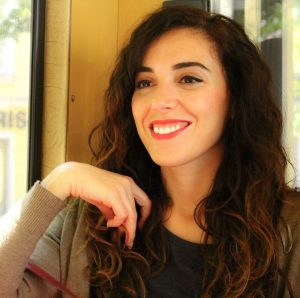Through funds channelled to RIDT by the Alive Charity Foundation, GIULIA VASSALLO EMINYAN is currently researching differentiation therapy – a science that aims to change the way we treat certain cancers at the very core.

Giulia Vassallo Eminyan
The Alive Charity Foundation and RIDT have long worked together with the aim to funnel the money raised through the former’s fundraising events into cancer research. One of the best ways to do that is by helping researchers increase their knowledge, and Giulia Vassallo Eminyan is doing just that.
For the past year, Giulia has been reading for a PhD in differentiation therapy under the supervision of Professor Pierre Schembri Wismayer, an associate professor of anatomy within the Faculty of Medicine & Surgery at the University of Malta.
With two years to go for her scholarship to end, Giulia’s PhD is already proving to be fruitful.
“My PhD looks at the use of differentiation therapy for neuroblastoma [the most common extra-cranium paediatric tumour] and glioblastoma [most aggressive form of brain cancer],” she explains. “In a nutshell, differentiation therapy is used to cause cancer cells to specialise – or ‘differentiate’ – thus, like any other specialised cells within our body, they would then age and die naturally, ceasing to reproduce and cause harm to the body.”
This kind of therapy has already been used for Acute Promyelocytic Leukaemia – and with an up-to-90 per cent success rate, the future is a bright one. Even so, it may take almost a decade to complete clinical trials.
In the first stages of her research, Giulia has mostly aimed at setting up the testing system and preparing the different techniques to be used for the main screening so as to see which chemicals affect the cell lines (a culture of cells that continues to grow indefinitely) the way she’d like them to.
“The cell lines require quite a lot of taking care of: they need to be fed, cleaned and kept happy in order to ensure that the changes happening are thanks to the chemicals being used on them and not to their environment,” she continues. “Which chemicals work is still to be seen, and they are being soured from collaborations from all over Europe, as well as natural products developed locally.”
In the future, and once the testing process is complete, the study would move to actual samples provided by patients before heading to clinical trials. That, of course, requires the researchers to be as sure as possible of their discovery. Having said that, they’re already very hopeful and confident, and it is this promise that inspired Alive to provide the funding for this PhD, which covers Giulia’s studying, as well as the money needed to buy consumables like the cell-lines and chemicals.
More importantly, however, it helps promote Maltese talent and gives patients of neuroblastoma and glioblastoma hope.
“I am so grateful to have been given this opportunity to further my research in an area which interests me so much. I think we often think that Maltese researchers can’t possibly make that big a difference in the fight against cancer, but with the right resources and enough funding there is no reason why we can’t.
“All I hope for is that the research proves successful, because it’s incredibly sad to think what people who have been affected by these diseases are going through each day,” she concludes.
Spending over 40 hours a week in the lab or at the library, Giulia is certainly working hard on her PhD… But the biggest thank you goes to you, for helping the Alive Charity Foundation fund it through your donations!
Help us fund more projects like this, as well as research in all the faculties, by donating to RIDT. Click here for more information on how to donate, or here for more information about the Alive Charity Foundation.
